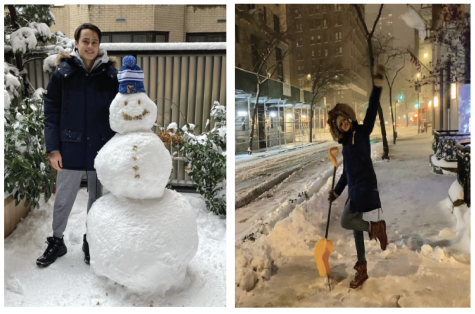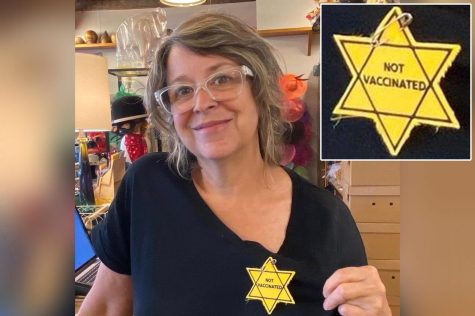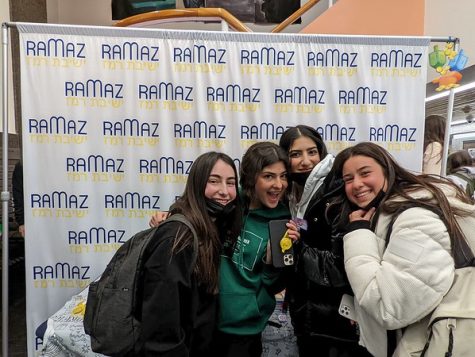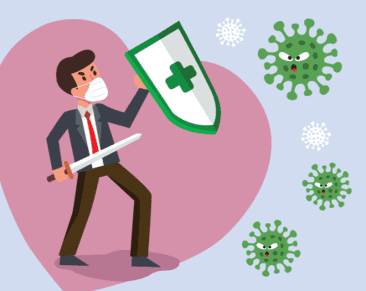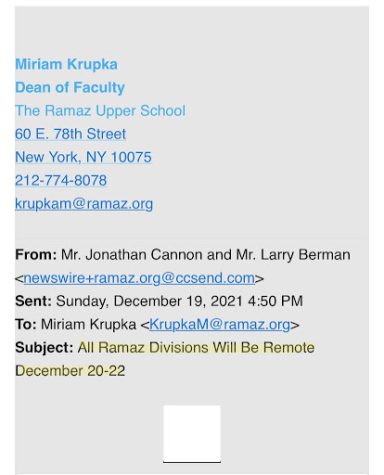Comfort During Uncomfortable Times: KJ Goes Virtual

For many Jews, the center of life is their shul. From a bris, to a bar mitzvah, to a yartzeit, almost every Jewish milestone is celebrated within the four walls of a synagogue. But over the last month, Jews across the religious spectrum have proven that Judaism cannot be defined by a building. Rather, the center of Jewish life is the people and the connections between them, regardless of how physically far apart they may be.
Because of the current Coronavirus pandemic, shuls around the tri-state area have closed their doors to stop the spread of the disease. From Reform to Charaidi, all Jews are feeling the weight of this decision. According to Josephine Schizer ’20, “Shuls feel like places that are always open and welcoming. Around the world, every Saturday, you just have to walk and you will find Shabbat. The idea that shuls are closed makes this circumstance feel even more serious and sad.”
According to Rabbi Steinmetz, Senior Rabbi of Congregation Kehilath Jeshurun (KJ), KJ was the first shul to close. The community shul was founded in 1872 and nobody can remember another time in history when it was not open. The closing of a shul that has been around for 148 years displays the gravity of the situation. One sophomore said, “I have gone to KJ my whole life and I only realized the severity of the situation when it closed.”
The decision to close KJ was difficult, yet necessary. The shul decided that it would close when Ramaz did. Rabbi Steinmetz said, “We saw a threat coming and decided we need to close.” As a shul dedicated to Jewish activism, KJ felt responsible to spread the message that social distancing can save lives. Rabbi Steinmetz said, “Jewish activism means being at the forefront and recognizing what the priorities need to be for the community. Today, true activism means protecting the Jewish community by preventing the spread of this disease.” Based on the guidelines of the CDC, KJ wrote on its website that “it is clear that our building will remain closed for the foreseeable future.”
But, closing KJ’s doors does not mean it stopped supporting its congregants. Instead, KJ used every means available to support the community online. Every morning, congregants have the opportunity to zoom in to “Prayers, Psalms, and Pesach”, where they can pray Shacharit, daven for the sick, and hear a brief insight related to Pesach. At lunchtime, people join in to chat with their community over food. And, congregants daven Micha and Maariv together online. On Sunday, March 29, one twelve-year-old boy even held his Hanachat Tefillin during a Shacharit zoom session. In addition to these programs, four or five lectures, classes, and activities are offered daily. KJ also offers a mental health series to support anxious families and elders. WhatsApp groups share short messages or Divrei Torah. Rabbi Steinmetz writes inspirational blog posts daily. There are also zoom programs for KJ’s youth. For example, children can bake along with their friends online or listen to bedtime stories. KJ rabbis are also available (as they always are) to speak to KJ congregants or Ramaz students and assure them during this time of uncertainty. Rabbi Steinmetz said, “We are lucky to be living in this era of technology. Nowadays, we don’t only have a telephone; we also have email, Zoom, Facebook, and Instagram.”
Congregants have responded positively. It does take a while for members to adjust to the new system. But Rabbi Steinmetz assures the community, “Zoom is unfamiliar technology and those who have downloaded it have remarked how easy it is to learn.”
KJ has been offering a plethora of pre-Pesach programming. Rabbi Steinmetz remarked that it is important for the shul to help everyone prepare, even from a distance. Many congregants are accustomed to traveling for the holiday, so this year, some are panicked: they have never made Pesach in their homes before. The rabbis are doing everything they can to ease the transition into the chag. Over the past few weeks, KJ has been teaching people how to clean their homes and lead a seder.
During this time of crisis, Rabbi Steinmetz advises teenagers: “You got this,” he said, “When challenges come in life, there are times that you can feel overwhelmed, sad, or anxious, but it is important to remember that you can rise up and become better.” Rabbi Steinmetz quoted Rabbi Samson Rafael Hirsch, who said that the word nisayon (challenge) is very similar to the word nisa (to be raised up). When Avraham was told to sacrifice his son in Akedat Yitzchak, he became stronger and better. Here too, we need to do our best to rise up and become stronger.
For a full list of KJ’s online programs: https://www.ckj.org/kjvirtual
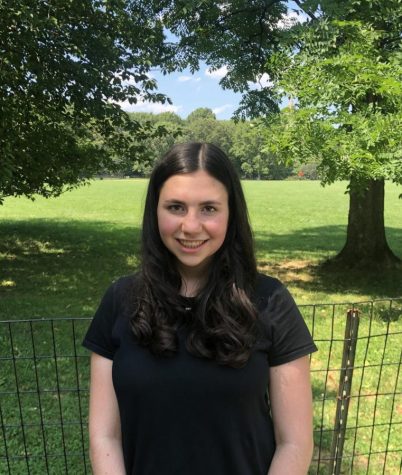
Rebecca Massel has been a journalist since lower school and is excited to be an editor-in-chief of The Rampage. She has been an active writer for the paper...

